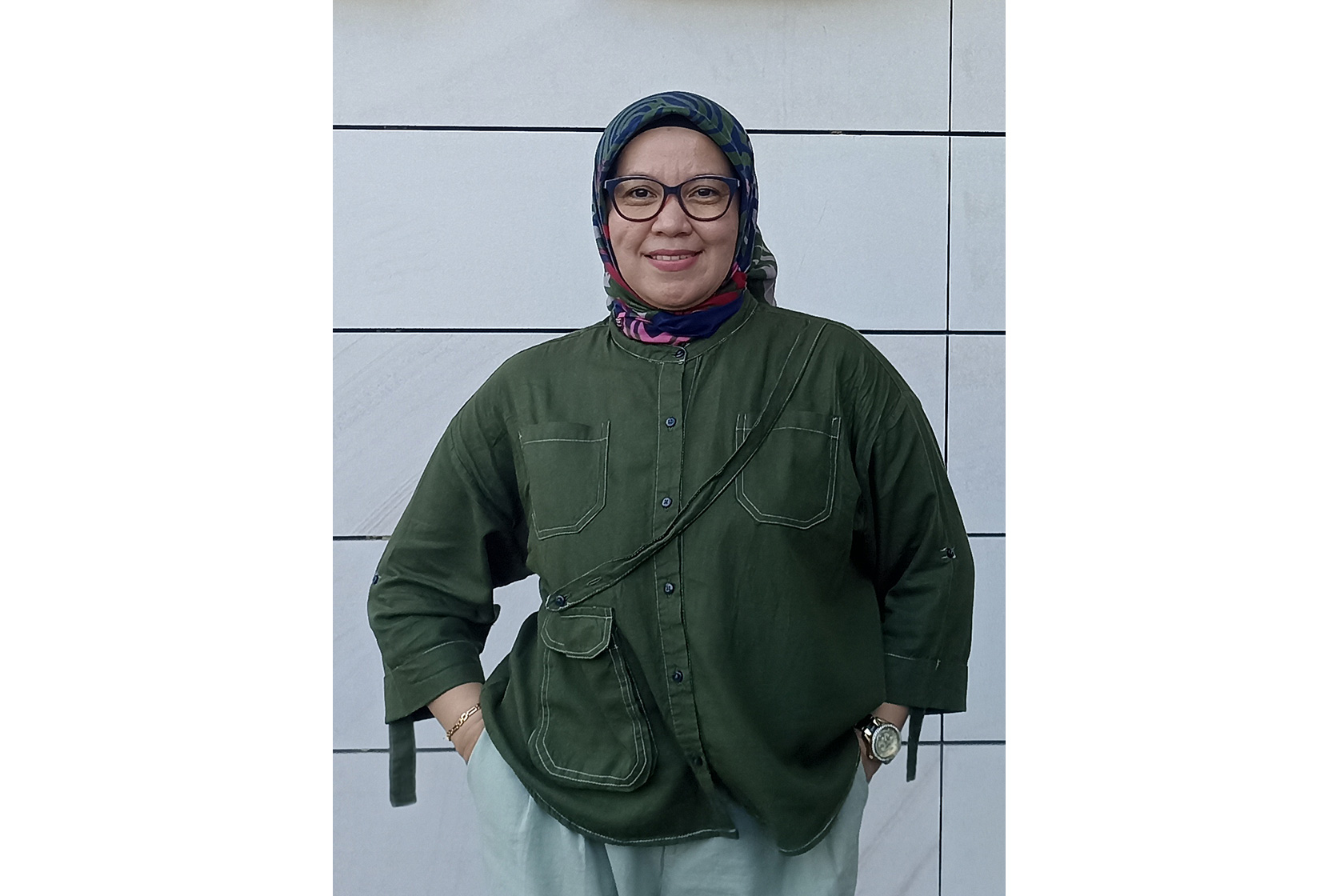A civil servant and a person with a polio disability, Mutia Sari is intrigued by the issue of inclusivity in Indonesian correctional institutions.
The policy analyst at the Indonesian Directorate General of Corrections (Ditjenpas) kept encountering question after question as she advocated for better inclusivity. How could they provide the best services to inmates with disabilities? What was the best way to give guidance to inmates with disabilities?
“These questions pushed me to participate in the short course, along with my curiosity to find out how Australia addresses the issue of inclusivity,” Mutia said, explaining her reason for enrolling in the Australia Awards Short Course on Role of Government and Organisation for People with Disabilities (OPDs) in the implementation of Policy Reform for Inclusive Development, run by the University of Sydney in 2022.
"The short course has taught me the importance of collaboration. It’s impossible for the government to achieve inclusivity by itself, nor can the non-governmental organisations fight alone.”
Achieving Inclusivity in Correctional Institutions
One step at a time, Indonesian correctional institutions are progressing towards a more inclusive future.
In 2020, the Indonesian Ministry of Law and Human Rights established a unit aimed at improving services and treatment for inmates with disabilities and their families.
In the next year, Ditjenpas began to collaborate with the Centre for Human Rights Studies at the Islamic University of Indonesia, the Asia Foundation, and the Australia-Indonesia Partnership for Justice 2 to develop the Correctional Institution System Database (SDP) Disability Service Unit Feature.
It is a tool to record and monitor the data of inmates with disabilities, including their type of disabilities and the services or treatments they have received.
The tool also keeps data on the inmates' needs for daily living aids such as wheelchairs or prostheses.
Mutia has been continuously involved in developing the SDP Disability Service Unit Feature from 2021 until its launch in early 2023. She continues to give guidance to hundreds of correctional institutions in Indonesia on how to use the tool.
“The short course has been impactful in perfecting the SDP Disability Service Unit Feature as I received help from fellow course participants. The course has been a reminder that the government needs to abandon its ego and start working with other stakeholders, such as ODPs, to achieve inclusivity,” Mutia said.
By late 2023, over 50 per cent of the 526 correctional institutions in Indonesia had received technical guidance on operating the tool.
Following the implementation of the SDP Disability Service Unit Feature, Mutia estimates the number of inmates with disabilities recorded within Indonesian correctional institutions has grown by almost 100 per cent.
Nevertheless, Mutia emphasised that relying on the tool alone was insufficient to achieve inclusivity. It is also necessary to reform the correctional institution officers’ mindset on people with disabilities. Mutia wants the officers to view people with disabilities as capable of living independently.
“I have leveraged the networking with OPDs I met through the course to give technical guidance and capacity building to correctional institution officers,” she said.
The four OPDs Mutia frequently collaborates with are the Boyolali Disabled Communication Forum, Indonesia Inclusive Institute, Indonesia Visual Impairment Association, and Indonesia Inclusive Light Foundation.
Advocating For Disability Rights
Everything was memorable for Mutia during her two-week stay in Australia, as she was always inspired.
From observing how cities accommodate the needs of persons with disabilities to a heartfelt talk from a speaker with Down syndrome.
The course allowed Mutia to meet other participants with diverse backgrounds, such as policymakers and a group of disability advocates who share a common goal of achieving a more inclusive future in Indonesia.
For her group award project, Mutia together with participants from OPDs and other government institutions, assisted persons with disabilities to register for national health insurance (JKN).
The pilot project took place in Kemusu, Boyolali Regency, Central Java, and has helped more than 100 people with disabilities register for JKN, with some getting their identification documents for the first time.
The group used several methods to reach out and help people with disabilities in Kemusu, from directly visiting and interviewing people in need, collaborating with the local government, campaigning through radio stations, and holding a focus group discussion attended by various stakeholders.
“After the focus group discussion, there were four sub-districts that declared their commitment to do what we did in Kemusu,” Mutia said.
After witnessing Australia’s approach to inclusivity, Mutia concluded that every person with disabilities must be treated with respect and dignity, not as someone to be pitied and locked up in a room all day.
“It is everyone’s responsibility to help people with disabilities so they can live independently,” Mutia said.
“I believe every human in this world is blessed with the power to help others.”


 Mutia Sari: Making Indonesia’s Correctional Institutions More Inclusive by Collaborating with Organisations for People with Disabilities
Mutia Sari: Making Indonesia’s Correctional Institutions More Inclusive by Collaborating with Organisations for People with Disabilities
